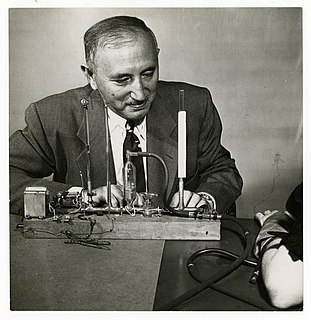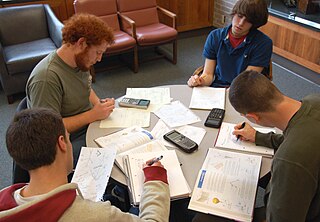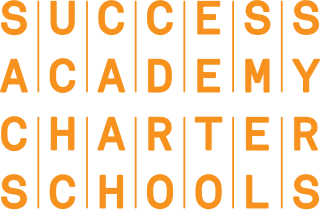
Neuropsychological tests are specifically designed tasks that are used to measure a psychological function known to be linked to a particular brain structure or pathway. Tests are used for research into brain function and in a clinical setting for the diagnosis of deficits. They usually involve the systematic administration of clearly defined procedures in a formal environment. Neuropsychological tests are typically administered to a single person working with an examiner in a quiet office environment, free from distractions. As such, it can be argued that neuropsychological tests at times offer an estimate of a person's peak level of cognitive performance. Neuropsychological tests are a core component of the process of conducting neuropsychological assessment, along with personal, interpersonal and contextual factors.
Intellectual giftedness is an intellectual ability significantly higher than average. It is a characteristic of children, variously defined, that motivates differences in school programming. It is thought to persist as a trait into adult life, with various consequences studied in longitudinal studies of giftedness over the last century. There is no generally agreed definition of giftedness for either children or adults, but most school placement decisions and most longitudinal studies over the course of individual lives have followed people with IQs in the top 2.5 percent of the population—that is, IQs above 130. Definitions of giftedness also vary across cultures.
Gifted education is a broad group of special practices, procedures, and theories used in the education of children who have been identified as gifted or talented.

David Wechsler was a Romanian-American psychologist. He developed well-known intelligence scales, such as the Wechsler Adult Intelligence Scale (WAIS) and the Wechsler Intelligence Scale for Children (WISC). A Review of General Psychology survey, published in 2002, ranked Wechsler as the 51st most cited psychologist of the 20th century.
The Wechsler Adult Intelligence Scale (WAIS) is an IQ test designed to measure intelligence and cognitive ability in adults and older adolescents. The original WAIS was published in February 1955 by David Wechsler, as a revision of the Wechsler–Bellevue Intelligence Scale, released in 1939. It is currently in its fourth edition (WAIS-IV) released in 2008 by Pearson, and is the most widely used IQ test, for both adults and older adolescents, in the world.
This is an index of education articles.
Cognitive tests are assessments of the cognitive capabilities of humans and other animals. Tests administered to humans include various forms of IQ tests; those administered to animals include the mirror test and the T maze test. Such study is important to research concerning the philosophy of mind and psychology, as well as determination of human and animal intelligence.

The Nueva School is a private school, with two campuses—the lower and middle school in Hillsborough, and the high school in San Mateo, California—serving gifted students in pre-kindergarten through twelfth grade. Nueva was founded in 1967 by Karen Stone McCown. Originally, the Nueva School only served younger students, but in 2013 it expanded to include a high school, and a new campus for it was built as part of the Bay Meadows development in San Mateo, opening in August 2014.
The Wechsler Intelligence Scale for Children (WISC) is an individually administered intelligence test for children between the ages of 6 and 16. The Fifth Edition is the most recent version.
The Wechsler Preschool and Primary Scale of Intelligence (WPPSI) is an intelligence test designed for children ages 2 years 6 months to 7 years 7 months developed by David Wechsler in 1967. It is a descendant of the earlier Wechsler Adult Intelligence Scale and the Wechsler Intelligence Scale for Children tests. Since its original publication the WPPSI has been revised three times in 1989, 2002, and 2012. The current version, WPPSI–IV, published by Pearson Education, is a revision of the WPPSI-R and the WPPSI-III. It provides subtest and composite scores that represent intellectual functioning in verbal and performance cognitive domains, as well as providing a composite score that represents a child’s general intellectual ability.
Traditional mathematics was the predominant method of mathematics education in the United States in the early-to-mid 20th century. This contrasts with non-traditional approaches to math education. Traditional mathematics education has been challenged by several reform movements over the last several decades, notably new math, a now largely abandoned and discredited set of alternative methods, and most recently reform or standards-based mathematics based on NCTM standards, which is federally supported and has been widely adopted, but subject to ongoing criticism.
The Gifted Rating Scale (GRS) is a scholastic assessment for school children. It is used mostly for Gifted & Talented admissions. It is administered by a teacher who knows the child well. The teacher rates specific gifted behaviors that they have observed over time.
The Otis–Lennon School Ability Test (OLSAT), published by the successor of Harcourt Assessment—Pearson Education, Inc., a subsidiary of Pearson PLC—is, according to the publisher, a test of abstract thinking and reasoning ability of children pre-K to 18. The Otis-Lennon is a group-administered, multiple choice, taken with pencil and paper, measures verbal, quantitative, and spatial reasoning ability. The test yields verbal and nonverbal scores, from which a total score is derived, called a School Ability Index (SAI). The SAI is a normalized standard score with a mean of 100 and a standard deviation of 16. With the exception of pre-K, the test is administered in groups.

IQ classification is the practice by IQ test publishers of labeling IQ score ranges with category names such as "superior" or "average".
The Cognitive Abilities Test(CogAT) is a group-administered K–12 assessment published by Riverside Insights and intended to estimate students' learned reasoning and problem solving abilities through a battery of verbal, quantitative, and nonverbal test items. The test purports to assess students' acquired reasoning abilities while also predicting achievement scores when administered with the co-normed Iowa Tests. The test was originally published in 1954 as the Lorge-Thorndike Intelligence Test, after the psychologists who authored the first version of it, Irving Lorge and Robert L. Thorndike. The CogAT is one of several tests used in the United States to help teachers or other school staff make student placement decisions for gifted education programs, and is accepted for admission to Intertel, a high IQ society for those who score at or above the 99th percentile on a test of intelligence.
The Naglieri Nonverbal Ability Test (NNAT) is a nonverbal measure of general ability designed by Jack A. Naglieri and published by Pearson Education. The Naglieri Nonverbal Ability Test - Individual Form was first published in 2004. Two versions were published in 2007 and 2008, respectively. This includes the group administered Naglieri Nonverbal Ability Test - Second Edition and the Naglieri Nonverbal Ability Test - Online version. The most current version is NNAT3. Like all nonverbal ability tests, the NNAT is intended to assess cognitive ability independently of linguistic and cultural background.

Test preparation or exam preparation is an educational course, tutoring service, educational material, or a learning tool designed to increase students' performance on standardized tests. Examples of these tests include entrance examinations used for admissions to institutions of higher education, such as college, business school, law school, medical school, BMAT, UKCAT and GAMSAT and graduate school and qualifying examinations for admission to gifted education programs.

Success Academy Charter Schools, originally Harlem Success Academy, is a charter school operator in New York City. Eva Moskowitz, a former city council member for the Upper East Side, is its founder and CEO. It has 47 schools in the New York area and 17,000 students.
Toshinori Ishikuma is a Japanese psychologist. He is known for his work on introducing and establishing the system of school psychology services in Japan, and his expert guidance and training in chosen students for psychology He was among key psychologists who started certifying school psychologists in Japan in 1997. He is also famous for development of individual intelligence tests such as the Japanese versions of Kaufman Assessment Battery for Children, Kaufman Assessment Battery for Children-Second Edition, and Japanese versions of Wechsler Intelligence Scale for Children -III and IV, as well as Wechsler Adult Intelligence Scale,- IV. He is now working to produce the Japanese version of Wechsler Intelligence Scale for Children -V. He was also among important members of movement toward "Certified Public Psychologist Bill", which was passed in 2015.





